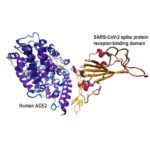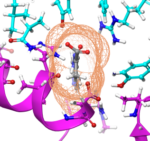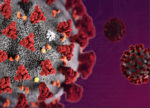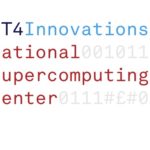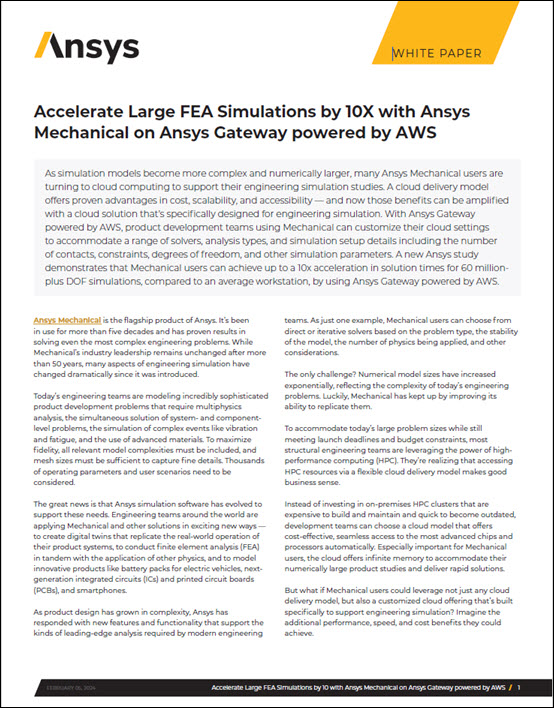An international research team of scientists – from Russia, Finland, Italy, China, Japan and Canada is using a recently upgraded HPC system at the Joint Supercomputer Center of the Russian Academy of Sciences to develop diagnostics and treatment against COVID-19 coronavirus infection that became the cause of global pandemic. “We aim to use molecular simulation to create a computer model of a medical drug with selective interaction with receptor-binding domain of Spike protein of SARS-CoV-2 coronavirus strain.”
Supercomputing the Spread of Contagions on Airplanes
Researchers are using supercomputers to model how contagions can spread onboard aircraft. Using Frontera’s GPU subsystem, the researchers were able to get the computation time down to 1.5 minutes. “Using the GPUs turned out to be a fortunate choice because we were able to deploy these simulations in the COVID-19 emergency. The GPUs on Frontera are a means of generating answers fast.”
D-Wave Offers Free Quantum Cloud Access for Global Response to COVID-19
Today D-Wave Systems announced the immediate availability of free access to its quantum systems via the Leap quantum cloud service for anyone working on responses to the COVID-19 crisis. “It is promising to accelerate the solution of complex problems in pharmacology and epidemiology, such as those that have arisen in the unprecedented COVID-19 crisis, by means of hybrid workflows from quantum-classical computer simulations.”
Lifebit Provides Free Cloud, Data Hosting & Analysis Tools to COVID-19 Researchers
Today Lifebit Biotech announced it is providing its premium Lifebit CloudOS license free to all researchers and teams working on COVID-19 efforts, including diagnostics, treatments, and vaccines. As increasing demand for widely accessible reference data and massive data sharing has never been more apparent, this initiative provides researchers with a seamless way to perform their analyses securely, while enabling teams to freely collaborate even when working from home.
NPR Podcast: Scientists Use Supercomputers To Search For Drugs To Combat COVID-19
In this segment from the NPR Here and Now program, Joe Palca talks to researchers using ORNL supercomputers to fight COVID-19. “Supercomputers have joined the race to find a drug that might help with COVID-19. Scientists are using computational techniques to see if any drugs already on the shelf might be effective against the disease. The two researchers performed simulations on Summit of more than 8,000 compounds to screen for those that are most likely to bind to the main “spike” protein of the coronavirus, rendering it unable to infect host cells.”
Intersect360 Research Lowers 2020 HPC Market Forecast for COVID-19
Intersect360 Research has released a new report guiding its clients that the market for HPC products and services will fall significantly short of its previous 2020 forecast, due to the global COVID-19 pandemic. The newly-revised forecast predicts the overall worldwide HPC market will be flat to down 12% in 2020. “Intersect360 Research had previously forecast the HPC market would grow 7.0% in 2020, year-over-year from 2019. This projected shortfall essentially wipes out that growth. This would end a streak of ten straight growth years for the HPC market.”
LLNL Researchers aid COVID-19 response in anti-viral research
Backed by five high performance computing (HPC) clusters and years of expertise in vaccine and countermeasure development, a COVID-19 response team of LLNL researchers from various disciplines has used modeling & simulation, along with machine learning, to identify about 20 initial, yet promising, antibody designs from a nearly infinite set of potentials and to examine millions of small molecules that could have anti-viral properties. The candidates will need to be synthesized and experimentally tested — which Lab researchers cautioned could take time — but progress is being made.
University of Birmingham joins COVID-19 Genomics UK Consortium
The UK government has backed their leading clinicians and scientists this week with new resources to map how COVID-19 spreads and evolves using whole-genome sequencing. Through a £20 million investment, the consortium will look for breakthroughs that help the UK respond to this and future pandemics, and save lives. “The government’s investment is well-timed to accelerate the pace of viral genome sequence production and ensure this information is openly available to epidemiologists and virologists worldwide. This will provide an unprecedented real-time view of COVID-19 virus evolution.”
Podcast: Supercomputing the Coronavirus on Frontera
Scientists are preparing a massive computer model of the coronavirus that they expect will give insight into how it infects in the body. They’ve taken the first steps, testing the first parts of the model and optimizing code on the Frontera supercomputer at the Texas Advanced Computing Center of UT Austin. The knowledge gained from the full model can help researchers design new drugs and vaccines to combat the coronavirus.
Czech supercomputers at IT4Innovations ready to combat coronavirus
The IT4Innovations National Supercomputing Center at VSB – Technical University of Ostrava has offered its users from academic institutions priority access to its computational resources to solve problems regarding COVID-19 disease research. “Today, we have called on our users to apply for our computational resources provided that they are currently involved in research addressing the COVID-19 disease,” said Vit Vondrak, IT4Innovations Managing Director. “Projects to be supported do not necessarily need to be focused only on drug design but could include development of nanomaterials or pandemic spread modeling among others.”

